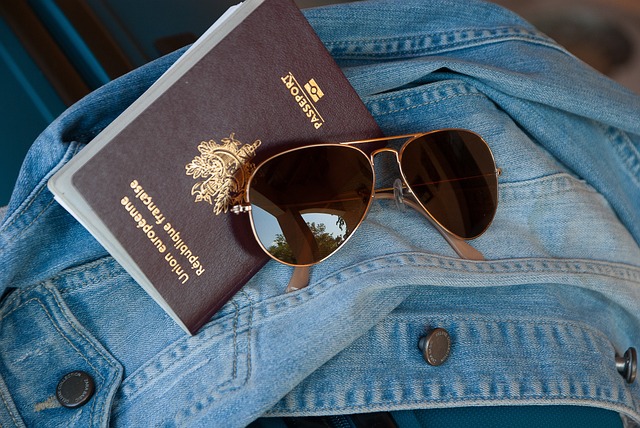If you are travelling to Australia and you are not from a country that is visa-free to Australia, you need to apply for a visa.
In your application, you will be required to provide (truthful) details about yourself, like who you are, your mission in the country, and how long it will last.
Also read: Why UK is better than Australia for study
You are not expected, under any circumstances to make false claims about yourself or your mission in the country.
Lying to immigration authorities in any country has severe consequences, and Australia is no exception.
The country has stringent immigration laws and is committed to maintaining the integrity of its borders.
So, they take falsehoods and misrepresentations seriously. If you are wondering what will be the consequences of lying to immigration in Australia, we are here to walk you through all of them.
Also, read: How can I increase my chances of getting a us tourist visa?
Does Australian immigration do background checks?
Yes, Australia’s immigration authorities conduct background checks as part of the visa application process. They use these checks to verify the information provided by visa applicants, including your identity, criminal history, and other relevant details.
Also read: Can I apply for an Australian visa after refusal?
Background check is a common practice during visa application, and it helps ensure the integrity of Australia’s immigration system and the safety and security of the country.
The one place you must not lie
If there is just one place you must not lie, it is in your Australian visa application form.
Australia’s immigration laws are governed by the Migration Act 1958, which outlines the requirements for entry, stay, and citizenship in the country.
Also read: How is life in Canada for international students
Under this legislation, providing false or misleading information to immigration officials is considered a serious offence.
Whether it’s submitting forged documents, misrepresenting one’s identity, or concealing relevant information, any form of deception has legal consequences.
What are the consequences of lying to immigration in Australia?
Just like in any other criminal offence, the crime you committed, determines your punishment, it applies here too.
Also, read How do I correct an error on my Nigerian passport?
The consequences of lying to immigration in Australia depend on the nature and severity of the deception.
The consequences you will likely face include the following:
- Visa refusal: Obviously, you don’t expect to get a visa after lying to immigration, it will never happen. Unless you got busted after you have been issued a visa.
- Visa cancellation: If you have already been issued a visa and the authorities somehow, discovers that you lied in your application, your visa (which has been issued to you) will be cancelled immediately. In addition, you will be detained and removed from the country.
- Ban on re-entry: In cases of serious deception, you will be banned from re-entering Australia for a specified period. This can range from several years to a lifetime ban, depending on the severity of the offence.
- Criminal charges: In instances where the deception involves serious criminal conduct, such as identity fraud or document forgery, you will face criminal charges under Australian law. This could lead to fines, imprisonment, or both.
- Damage to your reputation: Aside from the legal consequences, lying to immigration will also have long-term damage to your reputation and credibility. Once it’s revealed that you have engaged in deceptive practices, it will undermine your trustworthiness and integrity, affecting your ability to obtain visas or citizenship in the future.
Also, read What happens if your visa expires in another country?
Long-term consequences of lying to immigration in Australia
Lying to immigration in Australia can sometimes cause long-term games.
The repercussions of lying to immigration in Australia can extend far beyond immediate penalties.
You may face:
- Difficulty getting future visas: With your history of deception, no one would want to trust you again, and it will be very challenging for you to obtain visas or residency in Australia or other countries. Immigration authorities are likely to scrutinize your future applications more closely, making it harder for you to gain approval.
- It will affect your chances of employment and education: A tarnished immigration record can also affect your ability to secure employment or enrol in educational institutions. Many employers and educational institutions in the country conduct background checks, and a history of deception will raise red flags.
- Strained relationships: Lying to immigration will strain your relationships with family members, friends, and colleagues, especially if others are implicated or affected by your actions.
Also, read How to Retrieve a Lost International Passport in Nigeria
Trust is difficult to regain once it’s been broken, and rebuilding relationships will take time and effort.
If you are caught lying to immigration authorities, it will be difficult for the immigration authorities to trust you again when next you apply for a visa to Australia.
Conclusion
It is not a good place to be, even if you get the chance, do not lie to immigration authorities anywhere in the world.
It is a serious crime, against the country, yourself and the purpose of borders.
The consequences of lying to immigration in Australia are severe and far-reaching.
Also, read: How to apply for a scholarship in the UK from Nigeria
You can face visa cancellations, bans on re-entry, criminal charges, and damage to your reputation.
You will risk jeopardizing your opportunities and ability to travel freely.
Also read: How to cancel passport application form online
Before travelling to any country, make sure you understand the country’s immigration rules and obey them.
Finally, be truthful to immigration authorities whenever you are on the go.
